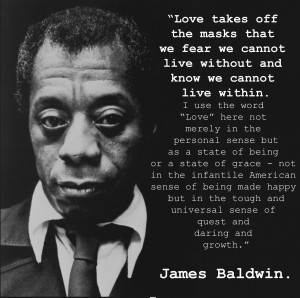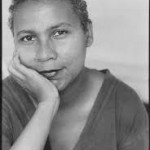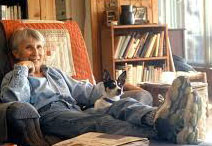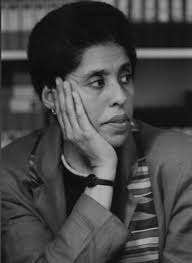2013 Session 1: Introduction
2013 Anne Braden Anti-Racist Training Program
Session 1: Introduction
Required Readings and Audio
- Anne Braden, “A Time To Organize” (7 page PDF*: Braden_A_Time_To_Organize; also at Colours of Resistance Archive). (bio).
- Elizabeth ‘Betita’ Martinez, “What Is White Supremacy?” from the Catalyzing Liberation Toolkit. (6 page PDF: What_Is_White_Supremacy_Martinez). (bio)
- Grace Lee Boggs, “Introduction to New Printing of RETC” (Revolution and Evolution in the Twentieth Century). (22 page PDF: Boggs_Intro_to_New_Printing_RETC). (bio)
- James Baldwin, “White Supremacy and the United States” (1963 speech) (audio at FreedomArchives.org; transcript: 2 page PDF:Baldwin_1963_speech . (bio)
- Joel Olson, “The Problem of the White Citizen,” Chapter 2 of The Abolition of White Democracy. (45 page PDF: Olson_The_Problem_of_the_White_Citizen). (bio)
- Suzanne Pharr, “Domination Politics,” from In the Time of the Right: Reflections on Liberation. (29 page PDF: Domination Politics by Pharr). (bio)
- Barbara Smith, “Racism and Women’s Studies” (3 page PDF: Racism_Womens_Studies_Barbara_Smith), “The Tip of the Iceberg” and “The Rodney King Verdict” from The Truth That Never Hurts: Writings on Race Gender, and Freedom. (8 page PDF: Smith_Iceberg_Rodney_King_Verdict). (bio)
- bell hooks, “Love as the Practice of Freedom” from Outlaw Culture: Resisting Representations. (9 page PDF: hooks_Love_As_The_Practice_Of_Freedom). (bio)
- Catalyst Project, “From A Place Of Love: Catalyst Project and the Strategy of Collective Liberation Leadership in White Communities” from Chris Crass, ed., Towards Collective Liberation: Anti-Racist Organizing, Feminist Praxis and Movement Building Strategy. (22 page PDF: Catalyst Project From a Place of Love).
- “Overview of Catalyst Project’s Feedback and Accountability Process in the Development of the Anne Braden Program”. (3 page PDF: Feedback and Accountability in the Anne Braden Program).
- Catalyst Project Annual Report 2010–2011.
Further Resources
- Martín Espada, “Imagine the Angels of Bread”, on the web at martinespada.net.
- Mario Benedetti, “Why Do We Sing?” (3 page PDF: Benedetti Why do we sing and on the web at voxpublica.org).
Readings are provided free for use by participants studying in the Anne Braden Training Program for Anti-Racist Organizers, a noncommercial, nonprofit educational program. We encourage everyone to buy the works from which excerpts have been taken – please support these authors and publishers.
Author Biographies
 James Baldwin was at once a major twentieth century American author, a Civil Rights activist and, for two crucial decades, a prophetic voice calling Americans, Black and white, to confront their shared racial tragedy. Baldwin, an African American gay man, wrote six novels, three plays, a children’s storybook, a book of short stories, and some 100 essays. Baldwin was born in Harlem, New York City, as the son of a domestic worker and was brought up in poverty. When he was three, his mother married a factory worker and storefront preacher. After graduation from high school, he worked in several ill-paid jobs and started his literary apprenticeship.
James Baldwin was at once a major twentieth century American author, a Civil Rights activist and, for two crucial decades, a prophetic voice calling Americans, Black and white, to confront their shared racial tragedy. Baldwin, an African American gay man, wrote six novels, three plays, a children’s storybook, a book of short stories, and some 100 essays. Baldwin was born in Harlem, New York City, as the son of a domestic worker and was brought up in poverty. When he was three, his mother married a factory worker and storefront preacher. After graduation from high school, he worked in several ill-paid jobs and started his literary apprenticeship.
His novels include Go Tell It on the Mountain, Giovanni’s Room, and Another Country. Baldwin expatriated to Europe because of racism and homophobia in the United States. He returned the U.S. to get involved in the Civil Rights movement and wrote dozens of essays about and to the movement. His book The Fire Next Time was a major contribution to the growing Black Power movement. His political insights to the freedom movement are reflected in his letter to Angela Davis when she faced state repression:
“We know that we, the Blacks, and not only we, the blacks, have been, and are, the victims of a system whose only fuel is greed, whose only god is profit. We know that the fruits of this system have been ignorance, despair, and death, and we know that the system is doomed because the world can no longer afford it—if, indeed, it ever could have. And we know that, for the perpetuation of this system, we have all been mercilessly brutalized, and have been told nothing but lies, lies about ourselves and our kinsmen and our past, and about love, life, and death, so that both soul and body have been bound in hell.
“The enormous revolution in black consciousness which has occurred in your generation, my dear sister, means the beginning or the end of America. Some of us, white and Black, know how great a price has already been paid to bring into existence a new consciousness, a new people, an unprecedented nation. If we know, and do nothing, we are worse than the murderers hired in our name.
“If we know, then we must fight for your life as though it were our own—which it is—and render impassable with our bodies the corridor to the gas chamber. For, if they take you in the morning, they will be coming for us that night.
Grace Lee Boggs “(b. 1915) is an activist, writer, and speaker whose seven decades of political involvement encompass the major U.S. social movements of the past hundred years. A daughter of Chinese immigrants, Boggs received her B.A. from Barnard College (1935) and her Ph.D. in Philosophy from Bryn Mawr College (1940). She developed a twenty-year political relationship with the black Marxist, C.L.R. James, followed by extensive Civil Rights and Black Power Movement activism in Detroit in partnership with husband and black autoworker, James Boggs (1919-93).” – graceleeboggs.com
 Anne McCarty Braden (July 28, 1924 – March 6, 2006) was an American advocate of racial equality. Born in Louisville, Kentucky, and raised in rigidly segregated Anniston, Alabama, Braden grew up in a white middle-class family that accepted southern racial mores wholeheartedly. A devout Episcopalian, Braden was bothered by racial segregation, but never questioned it until her college years at Randolph-Macon Woman’s College in Virginia. After working on newspapers in Anniston and Birmingham, Alabama, she returned to Kentucky as a young adult to write for the Louisville Times. There, she met and in 1948 married fellow newspaperman Carl Braden, a left-wing trade unionist. She became a supporter of the civil rights movement at a time when it was unpopular among southern whites. She and Carl Braden co-founded the Kentucky Alliance Against Racist and Political Repression.
Anne McCarty Braden (July 28, 1924 – March 6, 2006) was an American advocate of racial equality. Born in Louisville, Kentucky, and raised in rigidly segregated Anniston, Alabama, Braden grew up in a white middle-class family that accepted southern racial mores wholeheartedly. A devout Episcopalian, Braden was bothered by racial segregation, but never questioned it until her college years at Randolph-Macon Woman’s College in Virginia. After working on newspapers in Anniston and Birmingham, Alabama, she returned to Kentucky as a young adult to write for the Louisville Times. There, she met and in 1948 married fellow newspaperman Carl Braden, a left-wing trade unionist. She became a supporter of the civil rights movement at a time when it was unpopular among southern whites. She and Carl Braden co-founded the Kentucky Alliance Against Racist and Political Repression.

bell hooks
bell hooks, born on September 25, 1952 is an African-American author, feminist, and social activist. Her writing has focused on the interconnectivity of race, class, and gender and their ability to produce and perpetuate systems of oppression and domination. She has published over thirty books and numerous scholarly and mainstream articles, appeared in several documentary films and participated in various public lectures. Primarily through a postmodern female perspective, she has addressed race, class, and gender in education, art, history, sexuality, mass media and feminism.
Elizabeth ‘Betita’ Martinez was one of two Latinas in the Student Non-Violent Coordinating Committee working to build grassroots power in working class Southern Black communities in the 1960s Civil Rights movement. She worked in New Mexico from 1968–1976 in the Chicano Power movement and edited a movement newspaper, El Grito del Norte.
An antiracist, social justice activist for forty years, Elizabeth ‘Betita’ Martinez has published many articles and seven books on liberation struggles in Las Americas including 500 Years of Chicano History, and De Colores Means All of Us. Her most recent book, 500 Years of Chicana History has just been released. Martinez worked in the feminist movement and has prioritized alliance building between communities of color. In 1997 she co-founded the Institute for Multiracial Justice with former SNCC organizer Phil Hutchings. Martinez has been an advisor to the Catalyst Project since 2000.
Joel Olson (1979 – March 29, 2012). From New Clear Vision obituary: “Joel was Associate Professor in the Department of Politics and International Affairs at Northern Arizona University in Flagstaff, Arizona, where he specialized in political theory. A noted expert on racial politics and extremist ideologies, he was the author of The Abolition of White Democracy as well as numerous articles and reviews… During the 1990s Joel was involved with the Love and Rage Revolutionary Anarchist Federation and later went on to form Bring the Ruckus! He was a well-known figure in the a nti-racist and pro-immigrant movements in Arizona, working with grassroots groups including Copwatch and the Repeal Coalition.”
nti-racist and pro-immigrant movements in Arizona, working with grassroots groups including Copwatch and the Repeal Coalition.”

Suzanne Pharr
Suzanne Pharr describes herself: “In 1981, Suzanne founded the Women’s Project in Arkansas and was on the staff for 18 years. Its mission is to eliminate sexism and racism, working specifically on economics and violence, and through connecting all oppressions and oppressed groups.
From 1999-2004, she was the first woman director of the historic Highlander Research and Education Center. Its primary work for 73 years has been centered on workers’ rights, Civil Rights, environmental justice, immigrant rights, and the leadership of grassroots community people, including youth.
Suzanne is the author of Homophobia: A Weapon of Sexism and In the Time of the Right: Reflections on Liberation. Her life’s work has been focused on building a multi-racial, multi-issued movement for social and economic justice.

Barbara Smith
Barbara Smith (b. 1946) “has played a significant role in building and sustaining Black Feminism in the United States. Since the early 1970s she has been active as a critic, teacher, lecturer, author, scholar, and publisher of Black feminist thought. She has also taught at numerous colleges and universities … Smith’s essays, reviews, articles, short stories and literary criticism have appeared in a range of publications, including The New York Times Book Review, The Black Scholar, Ms., Gay Community News, The Guardian, The Village Voice, Conditions and The Nation … In 1975 Smith reorganized the Boston chapter of the National Black Feminist Organization to establish the Combahee River Collective. As a socialist Black feminist organization the collective emphasized the intersectionality of racial, gender, heterosexist, and class oppression in the lives of Blacks and other women of color… and in 1980, along with Audre Lorde and Cherríe Moraga, co-founded Kitchen Table: Women of Color Press, the first U.S. publisher for women of color.” –Wikipedia
* Note: number of pages refers to pages within the PDF file to provide a sense of the download size, not the number of pages of readings included. Links to external web sites open in a new page.
